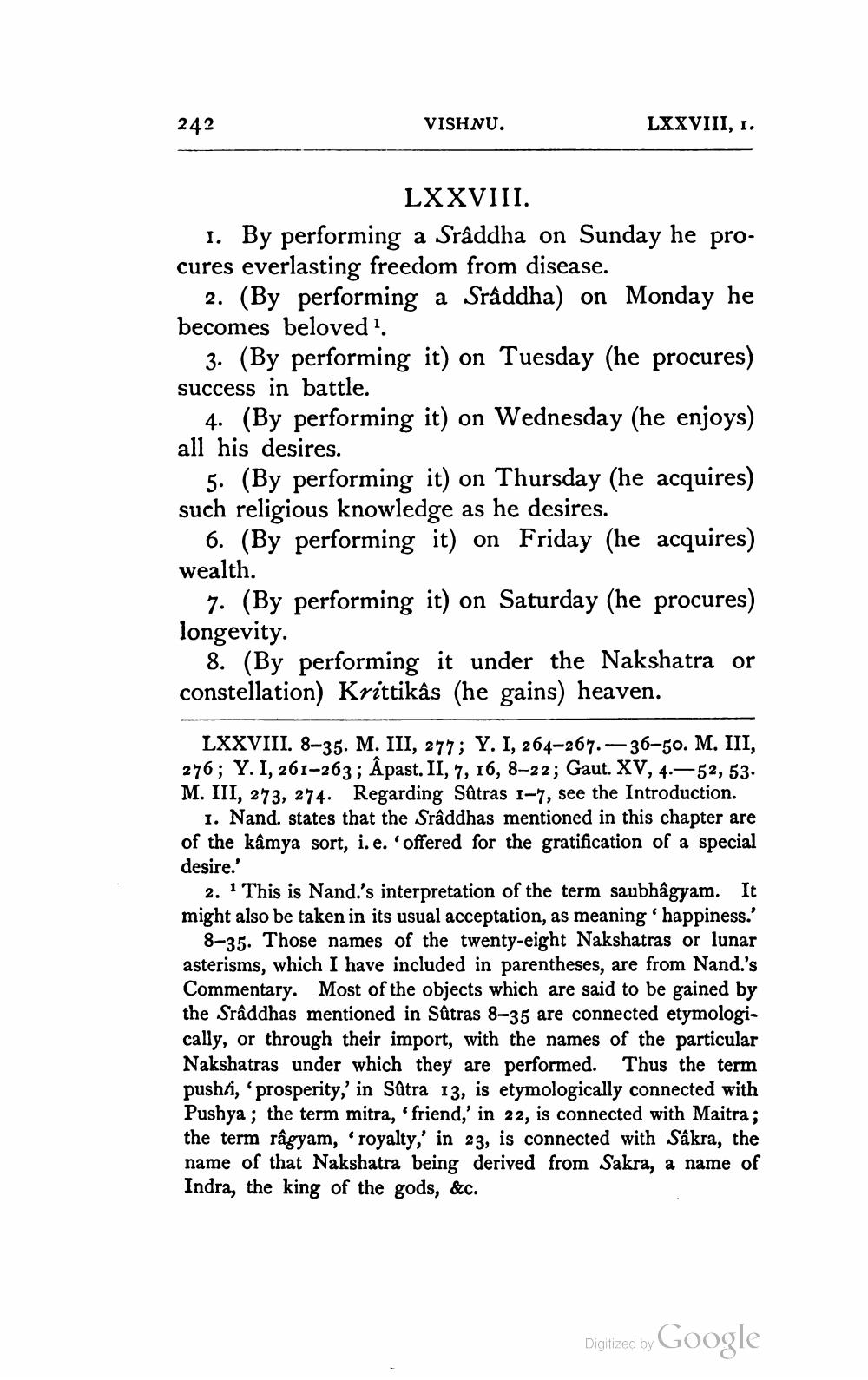________________
242
VISHNU.
LXXVIII, 1.
LXXVIII. 1. By performing a Sraddha on Sunday he procures everlasting freedom from disease.
2. (By performing a Sraddha) on Monday he becomes beloved ?
3. (By performing it) on Tuesday (he procures) success in battle.
4. (By performing it) on Wednesday (he enjoys) all his desires.
5. (By performing it) on Thursday (he acquires) such religious knowledge as he desires.
6. (By performing it) on Friday (he acquires) wealth.
7. (By performing it) on Saturday (he procures) longevity.
8. (By performing it under the Nakshatra or constellation) Krittikâs (he gains) heaven.
LXXVIII. 8–35. M. III, 277; Y. I, 264–267.—36–50. M. III, 276; Y. I, 261-263; Âpast. II, 7, 16, 8–22; Gaut. XV, 4.-52, 53. M. III, 273, 274. Regarding Sûtras 1-7, see the Introduction.
1. Nand. states that the Sraddhas mentioned in this chapter are of the kâmya sort, i.e. offered for the gratification of a special desire.'
2. 1 This is Nand.'s interpretation of the term saubhagyam. It might also be taken in its usual acceptation, as meaning 'happiness.'
8-35. Those names of the twenty-eight Nakshatras or lunar asterisms, which I have included in parentheses, are from Nand.'s Commentary. Most of the objects which are said to be gained by the Sraddhas mentioned in Sûtras 8-35 are connected etymologically, or through their import, with the names of the particular Nakshatras under which they are performed. Thus the term pushti, prosperity, in Sütra 13, is etymologically connected with Pushya; the term mitra, 'friend,' in 22, is connected with Maitra; the term râgyam, royalty,' in 23, is connected with Sâkra, the name of that Nakshatra being derived from Sakra, a name of Indra, the king of the gods, &c.
Digitized by
Digitized by Google




